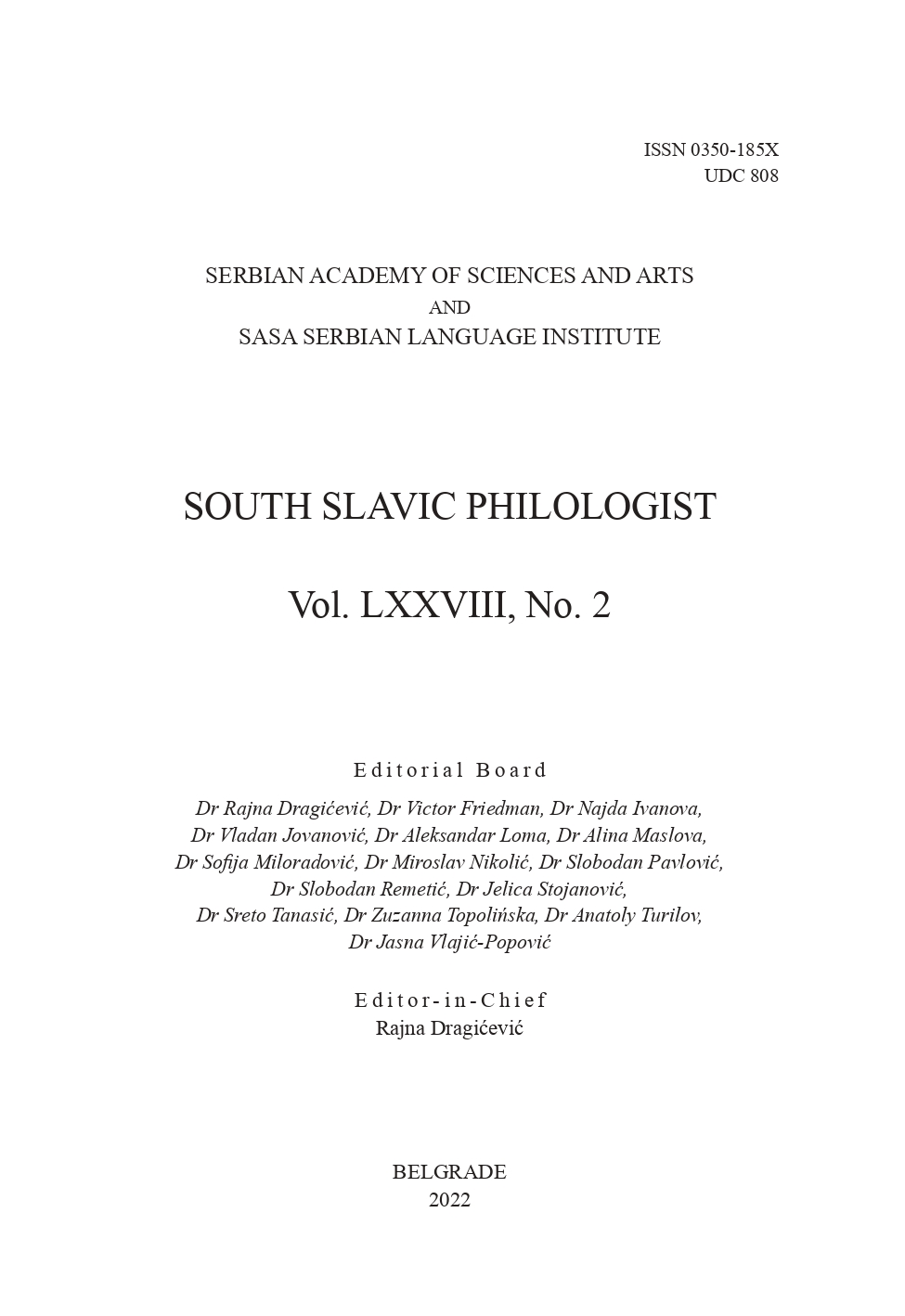ИМЕНИЦА В(ИЈ)ЕНАЦ У ИЗРАЗИМА С ХРИШЋАНСКОМ КОМПОНЕНТОМ ЗНАЧЕЊА У СРПСКОМ ЈЕЗИКУ (ИЗ УГЛА СРПСКОГ ЛЕКСИКОГРАФСКОГ ОПИСА)
NOUN В(ИЈ)ЕНАЦ IN PHRASES WITH CHRISTIAN MEANING COMPONENT IN THE SERBIAN LANGUAGE (FROM THE VIEWPOINT OF LEXICOGRAPHIC DESCRIPTION)
Author(s): Vladan JovanovićSubject(s): Lexis, Semantics, South Slavic Languages
Published by: Институт за српски језик Српске академије наука и уметности
Keywords: noun в(иј)енац; phrases; dictionaries; lexicography; defi nition; meaning; Serbian language
Summary/Abstract: This paper deals with the noun в(иј)енац in phrases with Christian (biblical) component of meaning in contemporary Serbian language from the lexicographic aspect. The research is founded on the assumption that in the Serbian language there is not only a greater number of phrases containing the noun в(иј)енац with Christian (biblical) component of meaning than those registered in the existing descriptive dictionaries, but also on the fact that the noun в(иј)енац in these realizations represents universal Christian concepts that are, to a greater or lesser extent, described in dictionaries of Slavic languages. Semantic components ‘immortality’, ‘feat’ and ‘glory’, which are inherent in the lexical content of expressions motivated by the noun в(иј)е - нац, belong to primarily Christian concepts of martyrdom, being tortured, feats and victory, which at the same time represent their primary meanings. This concretely means that, for example, the expression трнов венац is firstly labelled as a biblical expression, and then the derived, i.e. phraseological meaning was formed and separately defined. In the former case it is a biblical expression, while in the latter it is a biblicism as a special type of phraseologism. Moreover, by examining equivalent expressions in dictionaries of Slavic languages, where special attention is paid to dictionaries from the Slavic area of Slavia Orthodoxa, it was noticed that the noun в(иј)енац as part of expressions in concrete semantic realizations represents universal Christian concepts which are, to a lesser or greater extent, described in dictionaries of Slavic languages.
Journal: Јужнословенски филолог
- Issue Year: 78/2022
- Issue No: 2
- Page Range: 731-746
- Page Count: 16
- Language: Serbian

